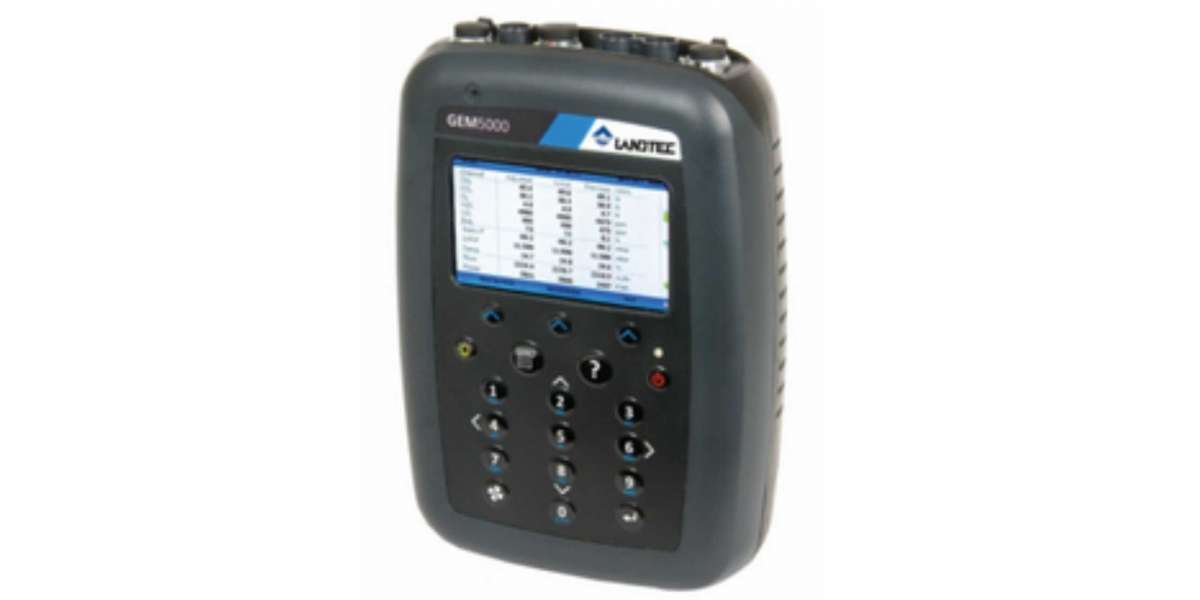CO2 analyzers are critical tools used in various industrial applications to monitor and control carbon dioxide levels, ensuring safety and improving operational efficiency. In many industries, excessive CO2 can pose health risks or negatively impact production processes, which is why maintaining the right balance is essential. This article explores how CO2 analyzers are integral to industrial safety and efficiency, focusing on their impact on industries across the USA.
Ensuring Safety in the Workplace
One of the primary roles of CO2 analyzers is to ensure the safety of workers in environments where CO2 levels can fluctuate. Industries such as chemical manufacturing, mining, and food production often involve processes that release CO2 as a byproduct. In high concentrations, CO2 can displace oxygen in the air, leading to dangerous situations like suffocation or reduced cognitive function in workers.
CO2 analyzers monitor these gas levels in real-time, providing immediate alerts if CO2 concentrations exceed safe limits. This early warning system allows businesses to implement corrective actions, such as increasing ventilation or evacuating workers, thus preventing potential health hazards. In confined spaces like tanks or pipes, where CO2 may accumulate unnoticed, these analyzers are especially important.
Improving Production Efficiency
CO2 analyzers also contribute to more efficient operations in manufacturing settings. In the food and beverage industry, for instance, CO2 is used for carbonation in drinks or as part of modified atmosphere packaging (MAP) to extend the shelf life of products. Maintaining precise CO2 levels during production is crucial for ensuring product consistency and quality.
By providing real-time data, CO2 analyzers allow operators to fine-tune the process, avoiding waste and optimizing resource usage. This not only helps in producing a high-quality product but also reduces energy consumption and material costs. Additionally, the ability to monitor CO2 levels continuously enables manufacturers to detect and resolve inefficiencies promptly, leading to smoother and more cost-effective operations.
Enhancing Environmental Compliance
As industries face increasing pressure to reduce their carbon footprint and comply with environmental regulations, CO2 analyzers are invaluable tools for monitoring emissions. Many industries, such as power plants or cement factories, generate large amounts of CO2 during production. These emissions must be carefully controlled to meet environmental standards and avoid hefty fines.
CO2 analyzers help companies monitor their emissions in real time, ensuring that CO2 levels do not exceed regulatory limits. This allows businesses to adjust their operations to minimize their environmental impact, optimize energy consumption, and reduce waste. By continuously tracking CO2 levels, companies can stay compliant with both federal and state environmental regulations, ultimately supporting sustainability goals.
Preventing Equipment Damage
CO2 analyzers also play a key role in protecting equipment and infrastructure from damage. In industries such as biotechnology or pharmaceuticals, CO2 is used in controlled environments like incubators or fermentation tanks. Maintaining the correct CO2 concentration is crucial for the success of these processes.
By monitoring CO2 levels, analyzers help prevent equipment malfunctions or failures due to improper conditions. This is especially important in industries where precision is essential to the quality of the final product. If CO2 levels deviate from the optimal range, early detection allows for quick adjustments, reducing the risk of damage and extending the lifespan of equipment. This proactive approach to maintenance minimizes costly repairs and downtime.
Boosting Energy Efficiency
Energy efficiency is a top priority in most industrial sectors. CO2 analyzers contribute to energy savings by helping industries optimize their combustion processes. In power plants, steel mills, or cement factories, CO2 is generated as a result of combustion. Monitoring CO2 levels is essential for ensuring that combustion is as efficient as possible, which directly impacts energy consumption.
CO2 analyzers provide real-time feedback on combustion performance, allowing operators to make adjustments and ensure that the process is running efficiently. By optimizing combustion, businesses can reduce fuel consumption, lower energy costs, and improve overall productivity. This not only benefits the company's bottom line but also supports sustainability efforts by reducing energy waste.
Improving Fermentation Processes
In industries like brewing or pharmaceuticals, CO2 is a byproduct of fermentation, a critical process that requires precise control to ensure product quality. For example, in brewing, managing CO2 production ensures consistent carbonation and optimal flavors in beer. In pharmaceutical manufacturing, CO2 concentrations can affect the growth of microbial cultures used in drug production.
CO2 analyzers help operators monitor and control CO2 levels during fermentation, ensuring that the process stays within the desired parameters. This real-time data helps improve the consistency and quality of the final product, reduces waste, and enhances the overall efficiency of the production process.
Conclusion
CO2 analyzers are essential tools that enhance both safety and efficiency in industrial settings. By continuously monitoring CO2 levels, they help prevent hazardous situations, optimize production processes, and ensure compliance with environmental regulations. These analyzers are invaluable in industries like food and beverage, pharmaceuticals, and manufacturing, where controlling CO2 concentrations is vital for product quality, worker safety, and operational efficiency.
As industries continue to evolve and face new challenges, CO2 analyzers will remain indispensable in maintaining a safe and efficient work environment. By providing real-time monitoring and actionable insights, they enable businesses to make informed decisions, reduce waste, and improve both their bottom line and sustainability efforts.







